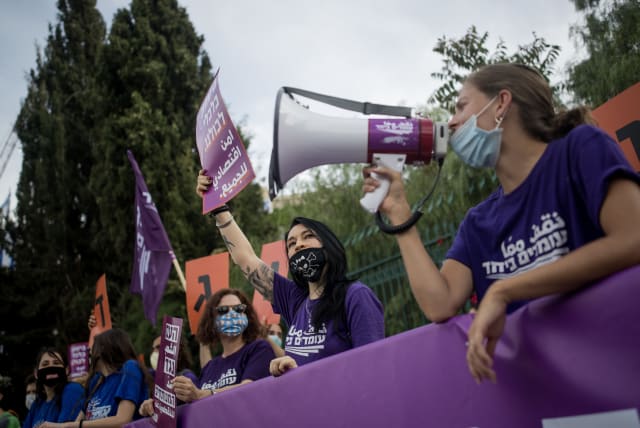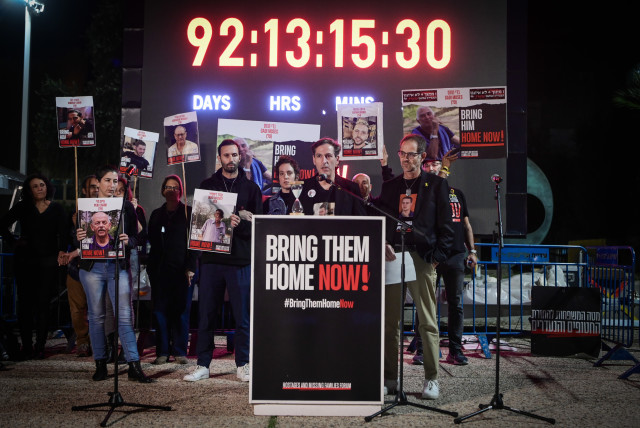Israeli human rights groups call for an immediate ceasefire, release of hostages

The statement Wednesday was spearheaded by Gisha, a group that has for years advocated for humanitarian assistance to reach Gaza Palestinians.
An array of left-leaning Israeli human rights groups has called for an immediate ceasefire in the Israel-Hamas war.
Their statement echoed the views of some of the families of the hostages still held by Hamas. It also was a sign of the way Jewish Israelis’ virtually wall-to-wall support for the war is showing cracks as it enters its fifth month.
The statement Wednesday was spearheaded by Gisha, a group that has for years advocated for humanitarian assistance to reach Gaza Palestinians.
“We thus call on all parties to reach an immediate ceasefire and we call upon Israel to allow unfettered entry and delivery of humanitarian aid and goods into and throughout Gaza, as directed to do by the International Court of Justice,” said the statement signed by 35 groups, including longstanding peace and human rights groups such as Peace Now, B’Tselem, Yesh Din, Standing Together and Physicians for Human Rights. “Hamas must unconditionally release all people taken hostage on October 7.”
Israelis still overwhelmingly back the war’s aim, to dismantle Hamas and to return the more than 130 hostages, living or dead, remaining after Hamas terrorists murdered 1,200 people on Oct. 7 and took hundreds captive.

Israelis have become less willing to accept an all-for-all deal
But within that framework, their perspectives have shifted: In October, 45% of Israeli Jews objected to exchanging any Palestinian security prisoners for the hostages, according to a poll by the Israeli Democracy Institute. By January, 31% were prepared to accept a deal in which all Palestinian prisoners — who number in the thousands — were released in exchange for the hostages. A slim majority of Israelis overall now says returning the hostages should be the war’s main goal — rather than toppling Hamas.
Among those pushing for a ceasefire and hostage exchange are some families of the hostages, who have staged protests throughout Israel. Other families of hostages and veterans of the war want to increase military pressure, and to keep international assistance from entering the strip.
The United States, Egypt and Qatar are trying to broker a temporary ceasefire. US Secretary of State Antony Blinken was in the region again this week. Israeli Prime Minister Benjamin Netanyahu rejected Hamas’ latest counteroffer, but said he was open to continuing negotiations.
Additionally, calls are increasing internationally for a ceasefire, especially after the International Court of Justice ruled last month that there may be reason to believe the population of Gaza is at risk of genocide. Israel and the United States say the charges are meritless.
More than 27,000 Palestinians in Gaza have been killed since Israel launched counterstrikes following Oct. 7, among them thousands of children, according to Gaza’s Hamas-run health ministry. Israel does not dispute the numbers but maintains that approximately a third of the dead are combatants.
